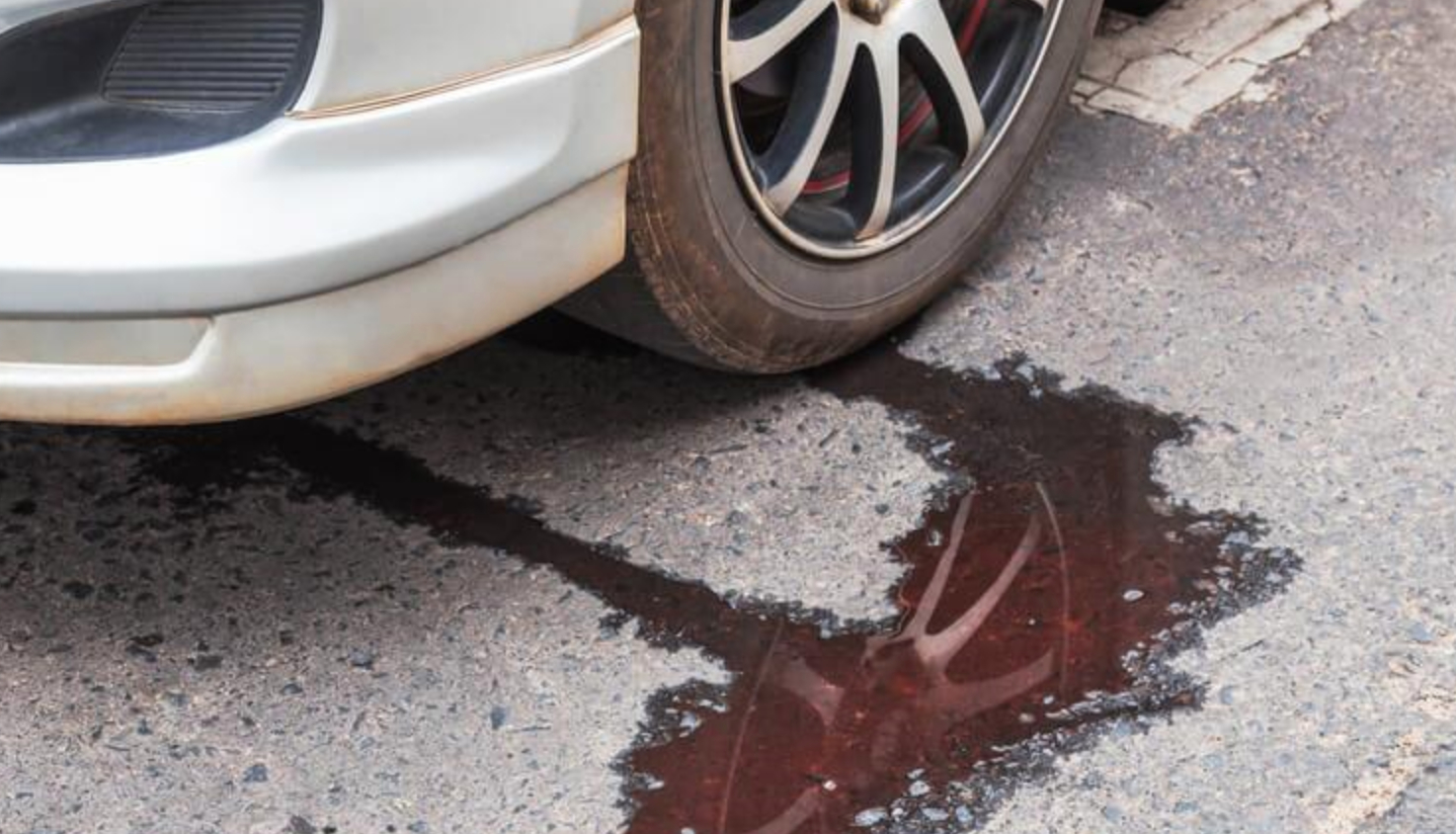
When you drive and operate a vehicle on a daily basis, whether it be a car or truck, it’s to be expected that you’ll eventually have minor problems such as fluid leaks. When you encounter a problem like this, you’ll probably wonder what type of fluid may be leaking from your vehicle’s engine. This article will explain how to identify the type of fluid leak that you have, and what steps you should take to fix it.
Here’s a Few Tips on How You Can Tell the Differences in Leaks
There’s really a lot of different fluids running through a modern day engine, these fluids include motor oil, antifreeze, brake fluid, windshield wiper fluid, and power steering fluid. When you notice that you have a leak of any sort, you’ll want to first identify what type of fluid it is by dipping a paper towel in the puddle and carefully smell it without allowing skin contact.
Usually antifreeze aka engine coolant will have a slightly sweet smell as compared to the other types of fluid. It’s important that the leak be identified so you know how to address the situation. If you suspect that you do in fact have a coolant leak, then you should not drive the vehicle at all, as it could cause severe damage to the engine.
Why Are Leaks Bad, and What Kind of Damage Can They Really Cause?
You’re probably wondering what kind of “engine damage” a coolant leak can really cause. A coolant leak can cause engine damage because the cylinder walls and block will most likely exceed the normal operating temperature, this causes the cylinder walls and rings to deform from their original format. This can result in a loss of compression inside the combustion chamber of the engine and potentially cause a fire.
As you can see, a coolant leak can be a very bad thing for your vehicle, and should definitely refrain from driving and/or starting your engine altogether in this type of situation.
If Your Car Has a Leak, Here’s What You Should Do
- If your car is emitting a cloud of white smoke from underneath the hood, you should pull over. This is important because an event like this would indicate a coolant leak of some sort. You should note that this is not like an oil leak where damage could occur over a long period of time, when an engine overheats it’s rather sudden for permanent engine failure. If you are slow to react appropriately and pull over too late, it can greatly increase the cost to repair your vehicle.
- Your second step of action is to turn on your hazards and stay inside your vehicle as a safety precaution. This is important because it will keep you clear of passing traffic and give you the ability to appropriately operate your mobile device in a safe environment.
- Your third step is to contact a local tow truck company that provides towing services in your area. You should take into consideration their prices, customer satisfaction, and average response time to ensure the best overall towing experience for you. If you’re in a hurry, and you would like to skip the research phase for added convenience, we would suggest that you contact Las Cruces Towing Company on their main website: https://www.towing-lascruces.com/
We’ve done most of the vetting and research to find the best possible towing service provider based on price, customer reviews, and tow truck driver response times.
- 4.Once you’ve scheduled an appointment with a Las Cruces towing company, you should next contact a mechanic to schedule an appointment for repair. You’ll need to let them know that your engine most likely has a coolant leak, and that you would like to have it checked before receiving a quote. They will allow you to bring your vehicle in at the appointment time, you should inform the mechanic or automotive shop that you may be a little early or late depending on when the towing service is able to deliver your car to your preferred mechanic.
How Can Someone Prevent Leaks From Occurring?
Now that you understand how to identify a coolant leak and what you should do to fix it, it’s important that you also know how to prevent a problem like this from occurring again.
You can prevent engine coolant leaks by using the recommended antifreeze for your vehicle. You should refer to your vehicles owners manual to better understand what type of coolant you should be using. Primarily, there’s two types of antifreeze, and you’ll need to identify which is going to be the better option for your car.
It’s not recommended that you ever work on anything related to hoses if you’re not experienced in doing so as a licensed professional. You should also be careful to not rev your vehicle’s engine too often or for too long, as this could cause added stress to your engine coolant system and water pump(s).
Lastly, be sure to pay close attention to the road ahead of you while driving as you wouldn’t want to hit a pothole. Potholes can cause the hoses that carry antifreeze to bust open or break underneath the engine bay.
